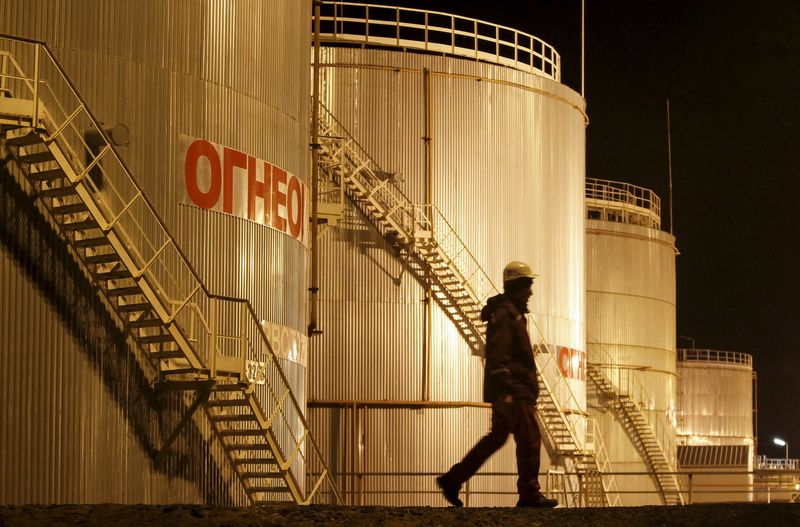By Barani Krishnan
Investing.com - Crude prices slid Thursday after the watchdog for western oil consumers warned that Covid’s Delta variant will slow down demand growth for energy in the second half of the year.
The outlook from the IEA, or International Energy Agency, came on the same day that OPEC, or the Organization of the Petroleum Exporting Countries, kept its forecast for oil demand growth in 2021 and 2022 unchanged despite the risk of the variant.
New York-traded U.S. West Texas Intermediate crude, the benchmark for U.S. oil, settled down 16 cents, or 0.2%, at $69.09 per barrel. So far for this week, WTI has only staged a recovery of 1.2%, after losing 7.7% last week for its sharpest weekly loss since October 2020.
London-traded Brent, the global benchmark for oil, settled down 13 cents, or 0.2%, at $71.31. Brent is up 0.8% week-to-date, after a 7.4% drop last week.
Oil prices fell after the IEA put last month’s demand slump at 120,000 bpd, or barrels per day, and predicted growth would be half a million bpd lower in the second half than it had estimated last month.
“Demand growth abruptly reversed course in July and the outlook for the remainder of 2021 has been downgraded due to the worsening progression of the pandemic and revisions to historical data,” the Paris-based EIA said.
“New Covid-19 restrictions imposed in several major oil consuming countries, particularly in Asia, look set to reduce mobility and oil use,” it added.
After a lull in May, coronavirus cases have begun ramping up across the world via variants such as the Delta.
Over the past week, an average of roughly 124,200 coronavirus cases has been reported each day in the United States alone, an increase of 86% from two weeks ago. Average daily hospitalizations are up to more than 68,800, an 82% increase over the last two weeks. The number of new deaths reported is up by 75%, to an average of 552 deaths per day.
“Delta is the new normal of Covid,” said John Kilduff, founding partner at New York energy hedge fund Again Capital. “It will hamper daily activity, and, as a result, some of the oil demand that goes with that, as hard as those long the market might want to deny.”
